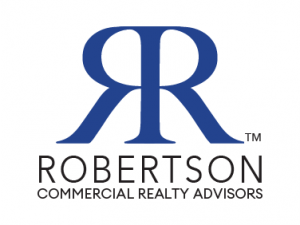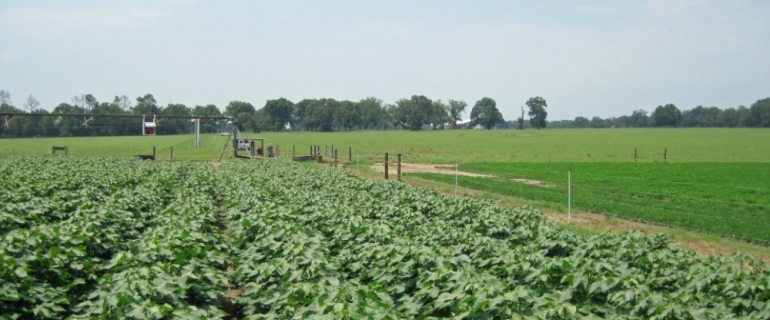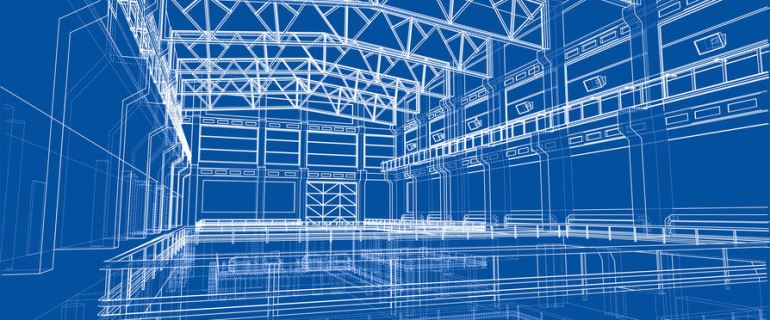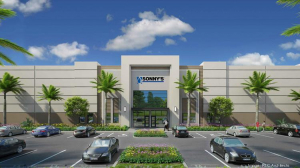There was a whirlwind of real estate deals in 2021 and most of 2022 as billions of dollars flowed toward the purchase or development of South Florida properties.
That steady pace of dealmaking was fueled by an influx of wealthy people, well-paid professionals, and businesses who relocated from other parts of the U.S. to Florida due to its decent weather, low taxes and business-friendly environment.
Today, that migration is still ongoing. However, higher interest rates and growing concerns of a nationwide recession have noticeably cooled South Florida’s red-hot economy. Still, the state’s population continues to grow, which has, in turn, kept the economy humming.
Meanwhile, the tri-county region remains a favored destination for the rich to invest and live in.
To discover about how these trends are affecting South Florida’s residential, office, retail and industrial real estate markets, now and into the future, the South Florida Business Journal gathered a panel of experts for its ninth annual Market Review panel event at the ArtsPark Gallery in Hollywood.
Moderated by Business Journal Real Estate Editor Brian Bandell, the panelists discussed how high interest rates and inflation have affected some property sectors and not others, whether the state’s continued population growth will make it less susceptible to a national recession, and other key topics. The two-hour discussion was sponsored by Berkowitz Pollack Brant Advisors and CPAs, Stiles and the city of Hollywood.
High Interest Rates
The panel launched with experts discussing one of the main drags on the region’s real estate market: higher interest rates.
Noah Breakstone, CEO of Fort Lauderdale-based developer BTI Partners, said interest rates started at 3.25% in January and have climbed to about 7%.
“It’s had a serious impact on purchasing power for single-family home buyers, for condo buyers throughout the market, and we are going to continue to see that effect,” Breakstone said.
Art Lieberman, director of tax services for Miami-based Berkowitz Pollack Brant Advisors + CPAs, agreed, adding that he’d seen a consistent slowdown in property transactions in recent months.
“And there is a good reason for that,” Lieberman said. “Financial leverage is turning either even or upside down.”
The rise in interest rates has created a “bid/ask spread,” in which sellers and buyers are reluctant to compromise on the price of real estate assets. That’s caused transactions to slow down, if not stop altogether.
“A lot of my clients are projecting no property sales for at least three months,” Lieberman said.
As for office deals, they have “come to a screeching halt,” said Brett Reese, managing director of Boca Raton-based CP Group, one of the largest office landlords in Florida.
“Deals we are still trying to make happen involve the seller offering financing … or they have an existing mortgage that we can assume,” Reese said. “Absent that, it is virtually impossible to make the deals work today.”
High interest rates, high capitalization rates and sellers not willing to compromise on price have contributed to the office deal slowdown.
“The other issue we come across is public markets,” Reese said. “The REITs (real estate investment trusts) have traded down or sold off so badly that their valuations are bleeding into the public market a lot faster than private markets.”
High interest rates and cap rates have slowed retail transactions, as well, said Nicole Shiman, senior VP of Edens, a Washington, D.C.-based retail owner and operator. On top of that, consumers nationwide are being squeezed by inflation. Nevertheless, retail has already faced adversity.
“Retail has been experiencing broad-based headwinds for a number of years, with e-commerce and Covid being the most significant stress tests imagined on retail,” Shiman said. “So, retail has fared a lot better than a lot of its piers from an interest rate perspective.”
Michael J. Stellino, senior managing director of development for Elion Partners, a North Miami Beach-based investment management firm that focuses on industrial real estate, said high interest rates have affected its business. But the industrial sector is doing fine.
“The ray of sunshine is that we have seen a lot of interest in the capital markets,” Stellino said. “Pension funds really have shown a positive commitment to industrial. It still feels like this is an asset class that has a long way to go.”
The Trillion-Dollar State
Harvey Daniels, VP of sales for Miami-based Fortune International Group, a broker and developer of high-end condominium projects, said high interest rates have hardly impacted the luxury residential sector. His customers pay cash directly to the developer over a period of four or five years.
“When you are dealing with the ultra-high-end luxury market, it is like, ‘What is a mortgage?’ You just don’t hear about it,” Daniels said.
And his clients are willing to pay record prices for a luxury residence, especially if it comes with an ocean view.
“I have been doing development sales for 30 years in South Florida, and I can tell you there are some of the most expensive projects coming online that South Florida has never seen before,” Daniels said. “Prices per square foot are exceeding $5,000. Somebody just sold something at preconstruction at $7,500 a foot. The reality is, they are coming here and they are buying here. And when that money comes here, the other things come.”
Bandell asked the panelists if the state of the national economy could slow down luxury buying in South Florida.
“Look, I have been hearing this for a long time, but we are in a bubble,” Daniels said. “We go up high and we go low fast. It is what it is.”
With 800 people a day moving to Florida, the state will continue to prosper, Berkowitz Pollack Brant’s Lieberman said.
“They have to live somewhere and work somewhere and play somewhere,” Lieberman said. “So … there is going to have to be increased building.”
In 2020 and 2021, more money migrated to Florida — about $24 billion — than any other state in the U.S., Edens’ Shiman said.
“Texas is next on the list, and they had $6 billion,” Shiman added. “We are talking about three or four times more than anywhere else in the country. And retail is in a great position to capture much of that cash flow. If you have significant wealth migration, you have more consumers with disposable income who can spend and that really drives retail sales, And once you drive retail sales, that is the opportunity to drive retail rents.”
The office sector has certainly benefited from the wealth influx, especially among companies entering the market for the first time, CP Group’s Reese said.
“For the last few years, the momentum on the leasing front has been unlike anything the state has experienced before,” Reese said. “Historically, maybe there was 250,000 square feet or so of new-to-market tenants coming in. Since Covid, it has been 2 million square feet and, if you were to look at who that is, it is every household hedge fund, private equity, bank, technology firm. They all established a presence in South Florida.”
Those new companies want Class A office space, and they are willing to shell out top dollar for it.
“There is no cap on what the top hedge funds or banks are willing to pay. The comps we are getting in West Palm for the best-quality space are three or four times higher than the highest rent ever achieved in South Florida,” Reese said. “What people are paying in rent per square foot is what we are buying buildings for per square foot.”
The influx of people and business has enhanced the demand for industrial, too, Elion Partners’ Stellino said.
“Those people are still shopping. They are still buying things,” Stellino said. “And where does all that product get stored before it goes to the retailer? Before it goes to the condominium? It all flows through the warehouse.”
Increasingly Unaffordable
The luxury market is performing well because South Florida is a historically proven safe harbor, both domestically and internationally, BTI Partners’ Breakstone said.
“Look at what is happening in Brazil, Colombia, Peru, Russia,” Breakstone said. “People want to keep their money here.”
But while the influx in cash has helped the commercial real estate sector, it hasn’t made it easier for the average income earner to afford to live here. Not only are most homes out of reach thanks to high interest rates, but rents are increasingly unaffordable, Breakstone said
“People who are medium income, they’re using over 50% of their earnings to live here and it’s getting even more costly,” Breakstone said.
Even local residents who bought early have a predicament.
“If you live in a place that you own, it’s great what you can sell it for,” Breakstone said. “But what are you going to buy?”
Higher interest rates and labor costs have made it much more expensive to build, too. And with less supply, there will be higher housing costs, taking the housing affordability issue from bad to worse, Breakstone said.
“I think Miami is on the track to be another New York, just with a better tax environment, superior weather, easier access and a lot of other dynamics,” Breakstone said. “But affordability is going to be a substantial challenge. I don’t think that is going to go away and there is going to have to be more creative solutions.”
The attraction of a skilled workforce is what South Florida needs to attract large tech companies such as Google, Reese said.
“South Florida in general is a place a lot of students want to move to, but it’s extraordinarily expensive,” Reese added, “So offering more affordable housing options is going to be critically important to attract that talent, and having that talent will spur more growth with employers.”
Future Trends
South Florida has likely already seen its biggest lease deals in the present real estate cycle, Reese said, so a “cooling off period” seems imminent. Transactions for office buildings, on the other hand, will probably heat up as the substantial mortgages that landlords took out over the years come due.
“We are at this standstill where somebody has to blink and … the first guy to blink is going to be the seller,” Reese said.
Retail landlords will generally do well in South Florida, thanks to the influx of cash and a shortage of available retail space, Edens’ Shiman said.
Industrial is also set to prosper, especially since developers and retailers are still hoarding items and materials after dealing with supply chain issues last year.
“They realize they are losing customers if they don’t have items on the store shelves,” Elion Partners’ Stellino said. “So, they keep that inventory here, where they can control it. That means builders and distributors now keep the raw materials they need in warehouses here instead of offshore and abroad, in case there’s another hiccup in the supply chain.”
Yet, there’s only so much space where new industrial can be built, leading logistics developers to consider new approaches.
Stellino said local industrial developers could replace Class B and Class C office buildings with newer Class A industrial, since they’re often in major markets.
Breakstone said there’s so much uncertainty in the market, he’s stopped trying to predict the future. He just makes sure he’s nimble enough to react to the “crosswinds that are happening.”
“South Florida is a micro-economy that does not follow national trends,” said Berkowitz Pollack Brant’s Lieberman. “We have booms when no one else does, And we have busts when no one else does.”
And Florida is unique in another aspect: Many of the people moving their residences and companies to the Sunshine State are attracted by its center-right politics.
“People are moving here for political reasons,” Lieberman said. “As long as there is a political imbalance between the north and the south, I think you will see the continued increase in population.”
Source: SFBJ





